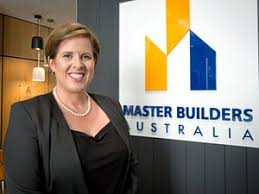Helping project managers to improve performance
By Leon Gettler, Talking Business >>
PERFORMANCE MANAGERS have a number of challenges. Besides the lack of goal alignment and clarity, they have to measure performance while supporting their own career growth.
This is where the Project Management Institute (PMI) comes in. It’s a global organisation that looks after and develops performance managers right around the world. PMI has more than 740,000 members who are represented across 300-plus chapters. That’s world-wide.
David Trott, who heads up PMI in Australia and New Zealand, is focused on developing project management professionals across the Asia-Pacific region. 
He works with industries, the higher education sector, industry organisations and with all three levels of government.
Mr Trott and his team cover 14,500 members across Australia and New Zealand.
His job also requires him to work with tech companies. These include Telstra, Ericsson and the global arms of IBM and Microsoft.
Reaching out to professional associations
“One of the key aims for me is looking at outreach into other professional associations,” Mr Trott told Talking Business.
“We want to explore what’s available to them, whether it’s a short course, whether it’s some online learning right through the certification, and being able to provide those pathways.
“With universities and the higher education sector, we’re really keen on helping them with existing content and new courses and finding those pathways, so that they are not only receiving an Australian qualification – as students at the end of their studies – but there’s also that pathway into the global certifications that PMI can offer.
“And that’s really attractive for both the VET (vocational and educational training) sector and the universities in terms of being able to uplift their students in terms of ‘Australian quals’ – but also what’s available to them globally.”
Mr Trott said it was a terrific area because it gave insights into future students and where their interests lay as project managers.
This meant the whole exercise was around collaboration with the tech companies and with the higher education sector.
PMI offers ‘prompt engineering’ help with AI
One of the key offerings of PMI, and it’s on their website is ‘prompt engineering’. That is, teaching people how to ask the right questions with their particular artificial intelligence (AI) tools of choice.
He said the tech sector had always been a big player with PMI since it was established in the US in 1969. It’s no different today as PMI helps its members to assimilate AI.
“The tech sector has always been part of that growth trajectory in that time,” Mr Trott said.
“It’s fantastic in terms of those collaboration opportunities and in terms of where are they headed, particularly around the areas of new technology and AI. And how can we support them.
“Also, what can we look at in terms of platform agnostic or a tool agnostic perspective.”
Mr Trott said this was critical because everything is always changing so quickly with technology.
“Things change all the time,” he said. “We know that Chat GPT is exceptionally strong as a product at the moment but there are new products coming online consistently and products will change year on year and new players will come into the market.
“That really comes hand-in-hand with what skills do project managers need now and what will they need next as we head into the future.” 
Hear the complete interview and catch up with other topical business news on Leon Gettler’s Talking Business podcast, released every Friday at www.acast.com/talkingbusiness
https://shows.acast.com/talkingbusiness/episodes/talking-business-43-interview-with-davud-trott-from-pmi
ends

 How to resolve AdBlock issue?
How to resolve AdBlock issue? 




